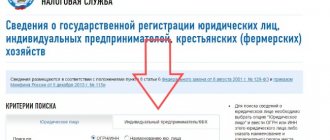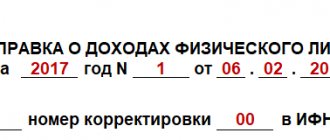When can you receive a social tax deduction from the state, and can an individual entrepreneur qualify for payments? Details on how the deduction is calculated, as well as instructions for filling out documents for receipt, are in the article below.
According to the law
Russian legislation gives the following definition of a social tax deduction: this is the amount by which a taxpayer can reduce the amount of his income subject to personal income tax, spent on his social needs: treatment, study, non-state pension provision, as well as for charitable purposes.
The requirements of the law and the conditions for obtaining are specified in Article 219 of the second part of the Tax Code of the Russian Federation, adopted on August 5, 2000 (Federal Law No. 117), as amended on August 3, 2020, amendments and additions to which came into force on September 4, 2020.
The law allows only individuals who are citizens of Russia to receive a social tax deduction who pay income tax on time - personal income tax: 13% of wages received. It is from these 13%, already transferred by the individual’s employer to the state budget, that a tax deduction is paid to the taxpayer. In fact, first a citizen of our country must pay a tax to the state, and then the state will return part of this money to him - in the amount of 13% of the funds spent on study, treatment, non-state pension insurance or charity.
For example, if an individual earned 200,000 rubles a year and paid a personal income tax of 26,000 rubles on this amount, and then spent 300,000 rubles on treatment, he will be able to receive payments for a maximum of the same 26,000 rubles, although 13% of expenses for treatment is 39,000.
A prerequisite for receiving a social tax deduction is the status of a tax resident. This means that an individual must stay in Russia for at least 183 days for 12 consecutive months. This norm is spelled out in Articles 224 and 207 of the Tax Code.
Are social tax deductions available to individual entrepreneurs?
Individual entrepreneurs can apply for such benefits only if they pay taxes to the state according to the general taxation system or have income that is subject to personal income tax. This right is confirmed by the Letter of the Ministry of Finance of Russia dated November 19, 2020, number 03-04-05/66945 .
When working on the general taxation system or paying taxes on personal income, an individual entrepreneur can also count on property tax payments when purchasing a home.
If an individual entrepreneur chooses the taxation system UTII (single tax on imputed income), simplified, unified agricultural tax, patent, he is not entitled to social tax deductions, because in this situation the individual entrepreneur is exempt from paying personal income tax.
How to get a deduction
There are two ways to receive a deduction:
- through the territorial branch of the Federal Tax Service;
- at the place of work.
To receive a social tax deduction you must:
- file your tax return on time;
- submit a package of documents for social tax deduction;
- wait for a decision on the appeal to be made;
- write an application for the return of overpaid amounts.
Interesting information: Tax deduction for dental treatment: who is eligible, how to apply
If the decision is positive, the money will go to the taxpayer’s account. Otherwise, the applicant can appeal either to a higher authority of the Federal Tax Service, or draw up and submit a claim to the court.
Upon receipt of a deduction from the Federal Tax Service, the entire amount will be transferred to the taxpayer’s account in one transfer.
What can you get a social tax deduction for?
Article 219 of the Tax Code of the Russian Federation clearly states for which expenses the right of an individual to receive a social tax deduction applies.
- Expenses for tuition: your own - in correspondence, full-time, distance learning; children, brothers and sisters, wards - only in person. If you plan to receive a social deduction for training not yourself, but another person, he must be no more than 24 years old. If funds from which an individual, by law, is not required to pay personal income tax, for example, maternity capital, were used to pay for studies, no deduction is allowed.
- Treatment costs – for yourself and for children under 18 years of age, parents or spouse.
- Expenses for paying contributions to non-state pension funds.
- Costs of voluntary life and health insurance if an insurance policy with a validity period of at least five years is purchased.
- Endowment life insurance, in which so-called long-term deposits are created - “airbags”, with the help of which a citizen can create additional protection for himself in old age.
- Contributions to the labor part of the pension. In this case, the taxpayer independently pays contributions to the pension fund in excess of what the employer pays for him in the funded part.
- Charity. As charity, the costs of which give the right to receive a deduction, the law names assistance to the development of science and culture, educational institutions and preschool education, and medical institutions; religious organizations. In this case, the amount of the social fiscal deduction cannot be more than 25% of the taxpayer’s income for the reporting period (year). Another important point: if the deduction in this case is not used in full, the balance cannot be transferred to the next year, according to Article 219 of the Tax Code, paragraph 1.
For charity expenses
Charitable contributions made to various organizations can also be partially returned. To apply for a social deduction, you must donate money for the following purposes:
- assistance to preschool and general education institutions (schools);
- support of religious organizations;
- financing the development of science and/or culture;
- support for the healthcare system.
- Protein-fat diet
- Classic meat salad recipe
- Julienne with cream - step-by-step recipes for cooking at home with chicken or mushrooms with photos
Maximum amount of social tax deduction
The amount per year cannot exceed the amount of personal income tax paid by the taxpayer, that is, 13% of the amount of his income for the past year.
The law determines the maximum amount of expenses on the basis of which calculations can be made.
- For your own training – 120 thousand rubles from the income received for the year. This means that the deduction for the year can be no more than 15,600 rubles (120,000 rubles * 13% = 15,600 rubles). For the education of children, the amount for compensation is less - 50,000 rubles for one, that is, the amount of the deduction will be 6,500 rubles. Moreover, you can receive payments for yourself and for your child in one reporting period.
- For treatment (your own, your children’s, your parents’, your spouse’s) – 120 thousand rubles. If medical care is expensive, there is no limit on the taxable base for deduction.
- Contributions to the labor part of the pension - up to 120 thousand rubles.
- Contributions to non-state pension funds and long-term life and health insurance are also no more than 120 thousand rubles per year.
- For charitable donations, the deduction amount is not limited to a certain amount, but it is regulated by the taxpayer’s share of income - no more than his annual quarter.
Let's give an example of calculations. For example, citizen A. earned 1,200,000 rubles in a year. And during this same time, he spent 70 thousand rubles on his own education, and he paid a total of 105 thousand rubles for the education of his two children. Another 25 thousand rubles were spent on treatment. He donated 50 thousand to a medical fund.
In total, it turns out that the amount by which the taxable base of his annual income can be reduced was 245 thousand rubles: 100 thousand - for the education of two children (50 thousand for each), 70 thousand - for his studies, 25 thousand - for medical services, and another 50 thousand - for charity. Multiplying 245 thousand rubles by 13%, we get the amount that citizen A. has the right to return from the personal income tax paid - 31,800 rubles.
We compensate for training
There are several conditions that you need to know when receiving an income tax refund using the education deduction .
Firstly, if you receive a deduction for your own training , then the limit on the amount is the same - 120 thousand rubles. But if you want to compensate for the costs of educating your children , then the amount is lower - 50 thousand for each child. That is, you can return 15,600 rubles from expenses for your studies, but only 6,500 rubles for a child.
Secondly, it can be issued during a child’s education only if he is a full-time . For a personal tax refund, the form of education is not important .
Thirdly, it cannot be obtained if funds from maternity capital or any other targeted subsidy .
Fourthly, even if documents for paying for schooling are issued for a child (who, most likely, is not a taxpayer), you can still, as a parent, receive a deduction (subclause 2, clause 1, article 219 of the Tax Code of the Russian Federation).
Documents required to obtain:
- completed tax return 3-NDFL;
- agreement with an educational institution;
- documents confirming payment for training (bank receipt, cash receipt, etc.).
An educational institution must have a license to conduct educational activities on the territory of the Russian Federation!
applications for social tax deductions for education.
how to get a tax deduction for education by watching this video:
https://youtu.be/-v0oSa3_QTs
Medical services and medicines that are subject to social tax deduction
Codes for medical services, for which the law gives the right to receive a tax deduction, are given in Article 219 of the Tax Code of the Russian Federation, in subparagraph 3, paragraph 4. This code must be indicated in the certificate indicating payment for medical services. If the services are ordinary, code “01” is written, if expensive – “02”.
A complete list of medical services, payment for which involves receiving such payments, can be found in the Decree of the Government of the Russian Federation of March 19, 2007. This document provides a list of services, as well as expensive types of treatment and medications, the costs of which are accepted to determine the social tax deduction.
A tax refund, for example, is provided for the purchase of anesthesia, narcotic and non-narcotic painkillers, antihistamines, drugs for the treatment of alcohol and drug addiction, antifungal drugs, vaccines and hormonal agents, serums and vitamins, and so on.
The same Resolution provides a list of types of expensive medical care provided in Russia, for which the deduction is calculated based on the amounts actually spent on
- surgical operations in the treatment of respiratory organs, circulatory system, developmental defects, eyes, nervous system, digestion and so on;
- surgeries for endoprosthetics, reconstruction and tissue restoration;
- organ transplantation and prosthetic implantation;
- plastic and reconstructive surgeries;
- for therapeutic treatment of malignant diseases, hereditary and chromosomal disorders, myasthenia gravis and polyneuropathies; connective tissue diseases;
- complex treatment of burn injuries;
- treatment of certain forms of infertility using the IVF method;
- nursing premature babies;
- combined treatment of pathologies, including complications of pregnancy and childbirth;
- and so on.
Compensation for treatment
Firstly, you can receive a personal income tax refund not only for your own treatment , but for providing medical care to parents, spouse and children under 18 years of age (how to apply for and receive a tax deduction for children?).
Secondly, it can be issued only when paying for treatment services in medical organizations in Russia or from a doctor who has a private practice and an appropriate license. That is, treatment abroad is not suitable.
Thirdly, the deduction applies, among other things, to the costs of purchasing medicines . However, the drugs must be on the list approved by Decree of the Government of the Russian Federation No. 201 of March 19, 2001.
Fourthly, you can also return part of the funds spent on paying insurance premiums under voluntary health insurance contracts.
Deductions for expenses for expensive treatment have a special status. It is not limited to 120 thousand rubles, but is made in the amount of actual expenses incurred. You can find out whether treatment is expensive from the same Government Decree No. 201.
For registration, documents similar to those presented in the first paragraph are required:
- completed tax return 3-NDFL;
- an agreement with a medical institution or doctor (if the costs were specifically for services);
- documents confirming payment for treatment or medications.
applications for social tax deductions for treatment.
You can learn more about the social tax deduction for treatment
Required documents to fill out and submit
Since a fiscal deduction, as follows from its definition, is calculated from the amount of taxes paid, you will need to provide the tax office with complete information about your income. On this basis, the fiscal authorities will calculate the amount of tax. And the calculation of payments will be based on it.
Data on income received is submitted to the Federal Tax Service in the form of an income declaration in Form 3 of personal income tax . And to fill it out, you need a certificate in form 2-NDFL, which indicates how much taxes you paid on your salary for a certain reporting period. For filing an income tax return, this time is one calendar year.
According to the law, the employer must submit data on taxes paid to the Federal Tax Service, and do this no later than a specific deadline. In 2020, this had to be done before April 1. And the income declaration in form 3-NDFL had to be submitted before April 3 by individuals, and by May 3 by individual entrepreneurs.
In addition, you will need to provide the fiscal authorities with
- documents confirming payment for services: receipts, checks, bank statements, payment orders and others;
- contracts for the provision of services, as well as agreements on donations made and acts of acceptance and transfer (if we are talking about charity);
- certificates from the organization providing the services, indicating that payment for the services was made in a certain amount;
- documents that confirm the status of the organization where the taxpayer received services for training, treatment, insurance, or a charitable organization. You will need copies of licenses for the right to conduct certain activities, constituent documents, budget estimates, and so on.
How to fill out an income tax return?
There are several ways to do this.
- The first is by hand on paper. To do this, you can take the tax return form from the tax office or print it out and then fill out all the fields. This is the most difficult option, since you need to know exactly which sheets need to be applied in a particular situation. If you make a mistake, the tax authorities will not accept the application.
- The second is to use a special program that can be downloaded from the tax office website. To do this, you will need a computer with Windows software installed on it.
- The third option is to register on the Federal Tax Service website, open your “Personal Account” there, and fill out the declaration directly there. According to the experience of those who have used this path more than once, it is the simplest and most reliable.
Obtaining a password for your “Personal Account” on the Federal Tax Service website
First, you will need to open the taxpayer’s “Personal Account” on the website of the Federal Tax Service. A password is required for this.
- You can get it at any tax office in Russia by presenting your passport and TIN certificate (if you go to the office at your place of registration, you don’t need to present the TIN). When you come to the Federal Tax Service, you will need to take a coupon from the electronic terminal: it should indicate the type. After a service employee registers you, you will receive a printed login and password for your personal account on the Federal Tax Service website. This procedure requires little time.
- Another option is to use a qualified electronic signature - you will need to purchase it.
- Another way is to use an account on the government services portal.
Instructions for filling out personal income tax declaration 3 on the Federal Tax Service website
- First step . If you decide to choose the first method - get a password from the inspectorate, the next step is to go to your “Personal Account”. When you visit it for the first time, the system will prompt you to change your password: this must be done within a month after the original password is received from the Federal Tax Service, otherwise you will have to go get a new one. Next, follow the system instructions.
By going to the “Personal Account” tab “Income Tax and Insurance Contributions”, you need to create a qualified electronic signature. To do this, install a special program on your personal computer or generate a signature on the fiscal service server.
- The second step is preparing documents.
- Firstly, certificates in form 2-NDFL for the previous year. This information should be displayed in the “Taxpayer’s Personal Account” automatically - after the employer has submitted the relevant data to the regulatory authorities. If he has not done this yet, he will have to obtain a certificate from the accounting department of his enterprise.
- Secondly, an agreement for the provision of services and a copy of it, for example, with a medical clinic, as well as checks and a certificate stating that you paid money for treatment , and a copy of the license of the medical institution. You will first have to fill out an application addressed to the management of the clinic in order to receive a certificate and a copy of the license, which must be certified by the director of the company. To do this, the clinic will ask you to show receipts. It may take several days or weeks to obtain the necessary documents.
- The third step is filling out an income statement, as well as an application for a personal income tax refund. For this purpose, there is a special section in the “Personal Account” - “Tax on personal income and insurance premiums”. Here you need to find the column “Fill out/send the declaration online” and then go to the “Fill out a new declaration” tab.
Where to go to register for social services? deduction?
In order to apply for this preferential right, you will need to contact the nearest branch of the Tax Service, or directly to your employer.
In the case where funds are reimbursed through the Tax Service of the Russian Federation, compensation for the tax deduction is provided immediately in full.
But when you contact your employer, the funds are compensated in equal amounts every month. This means that no income tax will be due until the amount is fully offset.
Receipt of this compensation is possible only for the three years preceding the date of application. That is, in 2020 you can apply for benefits for the period from 2020 to 2020.
Documents for registration
For registration of social deduction for income tax in the National Tax Service of the Russian Federation, you will need to submit a package of documentation at the end of the year in which the expenses were incurred.
The following documents must be collected:
- Completed application for social media deduction;
- Certificate of income in form 2-NDFL, received at the place of employment;
- 3-NDFL;
- A concluded agreement with a specific institution;
- Documentation supporting medical, educational, or other expenses.
When applying for a tax deduction for relatives, you will need to attach a birth certificate or marriage certificate to the above documents.
In case of applying for preferential social compensation at the place of registration, you will need to collect the appropriate package of documentation.
Initially, you will need to contact the nearest National Tax Service of the Russian Federation to fill out an application for a document that will confirm your right to this benefit.
In addition, it is necessary to collect documents confirming expenses.
The time for consideration of the application by the Tax Service is thirty calendar days.
The conclusion is issued in the form of a corresponding document. After this, the employer will need to fill out an application, which includes a copy of the document issued by the National Tax Service of the Russian Federation.
Application samples
A sample application for receiving a notification for social deduction is here.
A sample application for a social tax deduction when received through an employer can be downloaded from this link.
Deadlines for receiving tax deductions
The law gives the tax service quite a lot of time so that its employees can check whether you filled out your income tax return correctly. The period for such a desk audit is up to three months.
Inspectors are not required to tell the taxpayer when an audit begins and ends. During the verification process, a Federal Tax Service specialist may call with a request to provide the original documents submitted to calculate the deduction.
You can find out at what stage the verification is at in your “Personal Account” in the section where the declaration was filled out. There is an item “3-NDFL verification status”.
When the audit is completed, the tax service must transfer the money within the next month.
Deadlines for providing deductions
You should think about receiving compensation only after filing a 3-NDFL declaration with the territorial body of the Federal Tax Service of the Russian Federation.
This means that you can only receive it in the next year after the year in which the expenses were incurred; this is the tax period for personal income tax.
Interesting information: How to apply for a tax deduction for education
The period for consideration of applications regarding the provision of social deductions is no more than 1 month on the basis of clause 6 of Art. 78 Tax Code of the Russian Federation.
The law does not provide for a mandatory desk audit upon applying for a social deduction.
However, the practice of carrying them out is very common. In accordance with Art. 88 of the Tax Code of the Russian Federation, the period for conducting such an inspection is 3 months.
Only after conducting an inspection and making a positive decision, inspectors count down the month-long period for transferring money.
As a result, the period for receiving money ranges from 2 to 4 months, although the courts have repeatedly noted that the double interpretation of the provisions of Art. 78 of the Tax Code of the Russian Federation is not allowed and the period for payment of the deduction is 1 month.
If the inspector delays the consideration of the application and does not make a decision at the end of the month, the applicant has the right to appeal to a higher body of the Federal Tax Service, or directly to the court.
The deduction can be issued for the previous 3 years.
Statute of limitations for tax refunds under 3-NDFL
The law allows filing an application with the tax office to receive this type of payment within three calendar years after the taxpayer has incurred the expenses specified in Article 219 of the Tax Code of the Russian Federation. This means that, for example, if money for education, treatment, non-state pension, charity, life and health insurance was spent from 2020 to 2020, you can apply for a personal income tax refund in 2020.
This also makes it possible to spread the payment amount over several years. For example, if a citizen with an annual income of 1 million rubles paid 240 thousand rubles at a time for her education, in the next reporting year she can receive a deduction only from 120 thousand, that is, 15,600 rubles. However, after another year, she can use her right to receive payments for the second part of the tuition fee - and return another 15,600 rubles.
Social deductions for personal income tax in 2020: what are they?
Social deductions are provided in accordance with Art. 219 of the Tax Code of the Russian Federation. This article of the Tax Code provides for deductions:
1. In the amount that he allocated for charitable donations - within 25% of the annual taxable income of an individual (subclause 1, clause 1, article 219 of the Tax Code of the Russian Federation).
This amount reduces taxable income if donations were made to charitable foundations, NPOs (socially oriented, scientific, sports, working in the healthcare sector, etc.), religious organizations.
2. In the amount of up to 120,000 rubles per year - for taxpayer expenses aimed at:
- for paid education of oneself or full-time education of one’s brothers and sisters, if they are under 24 years old (subclause 2, clause 1, article 219 of the Tax Code of the Russian Federation);
- for paid treatment (not expensive) and the purchase of medications prescribed by a doctor for yourself, your spouse, parents, minor children and wards, as well as for the purchase of voluntary personal insurance policies concluded for at least 5 years (subclause 3 p. 1 Article 219 of the Tax Code of the Russian Federation). The list of medical services for which a deduction is provided is given in Decree of the Government of the Russian Federation dated March 19, 2001 No. 201;
- for pension contributions to a non-state pension fund - in favor of oneself, parents and close relatives (subclause 4, clause 1, article 219 of the Tax Code of the Russian Federation);
- for additional insurance contributions for your funded pension (subclause 5, clause 1, article 219 of the Tax Code of the Russian Federation);
- to undergo an independent assessment of their professional qualifications (subclause 6, clause 1, article 219 of the Tax Code of the Russian Federation).
The specified amount is 120,000 rubles. per year, includes deductions for all of the above reasons in aggregate. For example, expenses incurred during the year amounted to 80 thousand rubles. for treatment and 80 thousand rubles. for studying. In total, this is 160 thousand rubles, but only 120 thousand rubles can be deducted from them.
3. For taxpayer expenses in the amount of up to 50,000 rubles aimed at paid full-time education (subclause 2, clause 1, article 219 of the Tax Code of the Russian Federation):
- child under 24 years of age;
- a ward under 18 years of age or a former ward under 24 years of age.
Thus, for each child and ward, you can issue a deduction of up to 50 thousand rubles. in year. It does not add up to the 120 thousand for the taxpayer to pay for his studies - in fact, these are two different deductions for education.
4. In the amount spent on expensive treatment (subclause 3, clause 1, article 219 of the Tax Code of the Russian Federation).
Expensive types of treatment are reflected in a separate list approved by Decree of the Government of Russia dated March 19, 2001 No. 201. A taxpayer can apply for this social deduction for treatment in 2020 even if he paid for the treatment of relatives (spouse, parents, minor children).
Differences between social, standard and property tax deductions
Social tax is one of the types of tax deductions that are provided to Russian citizens. In addition, there are standard and property deductions.
What all three options have in common is that they can be received by individuals and individual entrepreneurs who pay personal income tax.
- The difference between standard and social deductions is the fixed amount of the former. In 2020, it is minus 500, 1400, 3000, 6000, 12000 rubles from taxable income. Article 218 of the Tax Code defines two types of such payments - for the taxpayer himself and for his children. The law states who exactly has the right to such deductions, for example, parents of disabled children.
- Property tax deductions are described in Article 220 of the Tax Code. They are valid for the sale of an apartment or house, vehicles, shares, for the purchase of housing on a mortgage and on credit, and for the construction of housing. For example, by purchasing an apartment or concluding an agreement for shared construction, you can get back from 2 million rubles paid for the apartment to 260 thousand.
Charity
If a person has made contributions to charitable activities during the year, then he has the right to social benefits. Charitable activities include:
- providing financial assistance to a charitable organization;
- investing money in non-profit organizations that pursue legislative policy;
- financial assistance to non-profit structures involved in the development of projects in the field of science, healthcare, culture, non-professional sports, support for environmental institutions, protection of our little brothers, assistance to citizens in protecting themselves from emergency situations, etc.;
- assistance to religious associations.
When do you need the help of a specialist to fill out a declaration?
It is not difficult to fill out a declaration on the website of the fiscal service yourself, if it is simple and does not require taking into account additional cash receipts, property and standard deductions, and other points. In such cases, it will be more difficult to cope with the task - it is better to attract a specialist who is well versed in accounting and knows what data to enter in which columns in each specific case.
Of course, you will have to pay for the service, but it is more profitable than filling out a declaration with errors, and then, at the end of the desk audit, discovering that this was the reason for the refusal of payments. This is especially important when large sums are involved.








